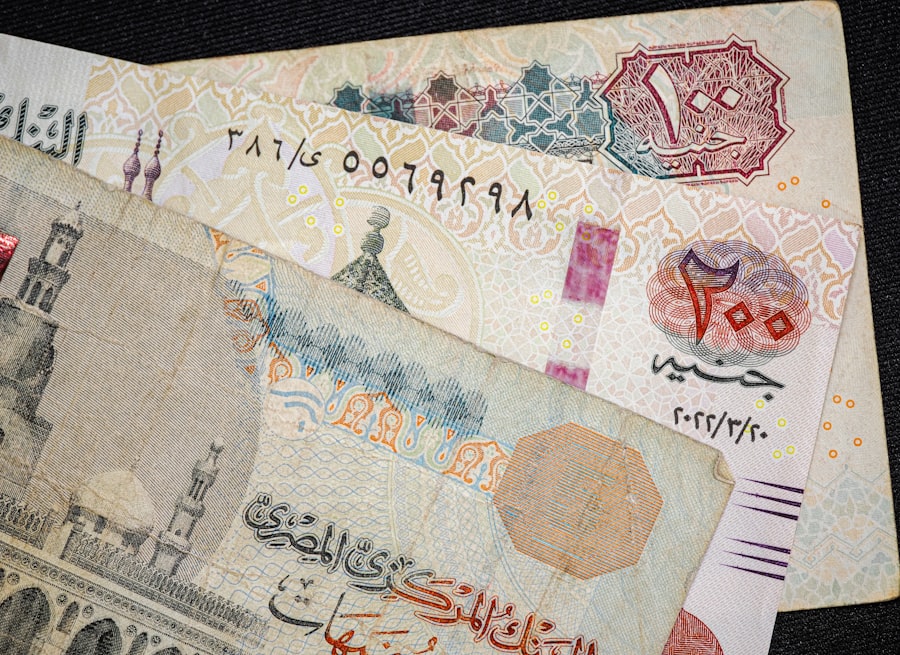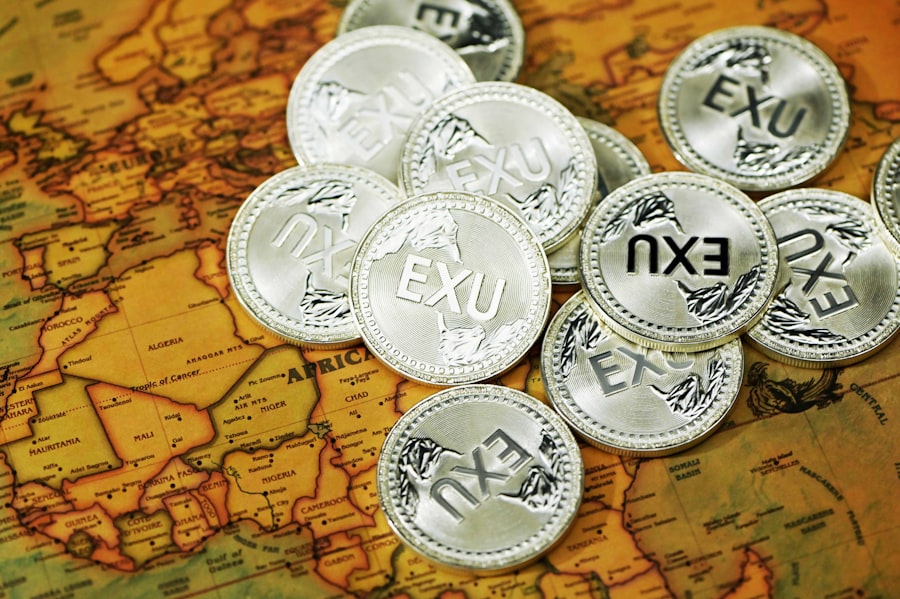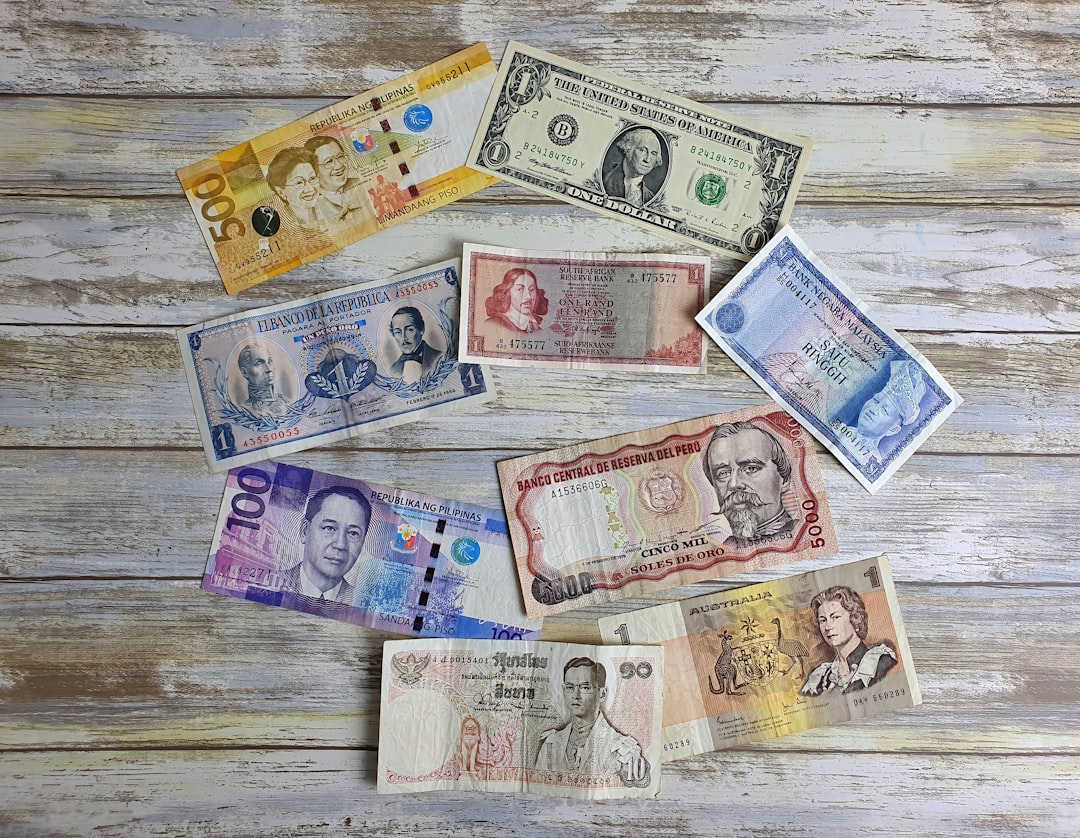Currency serves as more than just a medium of exchange; it is a powerful tool that shapes the landscape of international relations. In the realm of geopolitics, currency can influence national power, economic stability, and diplomatic relationships. When you consider the role of currency, it becomes evident that it is intertwined with a nation’s identity and its standing on the global stage.
The strength or weakness of a currency can reflect a country’s economic health, impacting everything from trade balances to foreign investment. As you navigate through the complexities of global politics, understanding the significance of currency becomes essential. Moreover, currency can act as a weapon in geopolitical conflicts.
Nations often leverage their currencies to impose economic sanctions or manipulate trade agreements. For instance, a country may devalue its currency to make its exports cheaper, thereby gaining a competitive edge in international markets. This tactic can lead to tensions with trading partners and may provoke retaliatory measures.
As you delve deeper into the world of geopolitics, you will find that currency is not merely a financial instrument; it is a strategic asset that can alter the balance of power among nations.
Key Takeaways
- Currency plays a crucial role in shaping geopolitical dynamics, influencing trade, alliances, and international relations.
- Major currencies like the US dollar, euro, and Chinese yuan wield significant power in global politics and economics.
- Currency manipulation can have far-reaching effects on international relations, leading to tensions and conflicts between nations.
- Exchange rates play a pivotal role in determining trade patterns and economic alliances between countries.
- Currency wars can have serious consequences, including trade imbalances, inflation, and geopolitical instability.
The Role of Major Currencies in Global Power Dynamics
Major currencies like the US dollar, euro, and yen play pivotal roles in shaping global power dynamics. The dominance of the US dollar, for instance, allows the United States to exert considerable influence over international trade and finance. When you consider that most global transactions are conducted in dollars, it becomes clear how this currency serves as a cornerstone of American economic power.
This dominance enables the US to impose sanctions effectively and control access to financial markets, thereby reinforcing its geopolitical position. In contrast, the euro represents the collective strength of the European Union, showcasing how regional currencies can also wield significant influence. As you explore the dynamics between these major currencies, you will notice how they interact with one another, creating a complex web of dependencies and rivalries.
The rise of emerging economies has also introduced new players into this arena, challenging the traditional dominance of established currencies. As you analyze these shifts, you will gain insights into how currency can be both a reflection of power and a catalyst for change in global politics.
The Impact of Currency Manipulation on International Relations

Currency manipulation is a contentious issue that can strain international relations. When a country deliberately devalues its currency to gain an unfair advantage in trade, it can lead to accusations of economic warfare. As you examine case studies of nations accused of manipulation, such as China or Japan, you will see how these actions can provoke backlash from trading partners.
Countries may respond with tariffs or other trade barriers, escalating tensions and potentially leading to broader conflicts. Furthermore, currency manipulation can undermine trust in international financial systems.
As you consider the implications of these actions, you will recognize that they not only affect economic relationships but also have far-reaching consequences for diplomatic ties. The delicate balance between cooperation and competition in international relations is often tested by the specter of currency manipulation.
The Influence of Exchange Rates on Trade and Economic Alliances
| Country | Exchange Rate | Trade Volume | Economic Alliances |
|---|---|---|---|
| United States | 1 USD = 0.85 EUR | 1.5 trillion | NAFTA, WTO |
| European Union | 1 EUR = 1.18 USD | 2.3 trillion | EU-ASEAN, EU-Mercosur |
| China | 1 CNY = 0.15 USD | 2.5 trillion | RCEP, SCO |
Exchange rates play a crucial role in determining the competitiveness of nations in global markets. When you think about how fluctuations in exchange rates can impact trade balances, it becomes clear that they are not just numbers on a screen; they represent real economic consequences for countries and their citizens. A strong currency can make exports more expensive and imports cheaper, potentially leading to trade deficits.
Conversely, a weaker currency can boost exports but may also increase the cost of imports, affecting domestic consumers. As you explore the influence of exchange rates on economic alliances, you will find that countries often align themselves based on their currency strengths and weaknesses. For instance, nations with similar economic conditions may form trade agreements to stabilize their currencies and enhance mutual benefits.
This interconnectedness highlights how exchange rates can serve as both a barrier and a bridge in international relations. Understanding these dynamics is essential for grasping how countries navigate their economic landscapes and forge alliances.
Currency Wars: Strategies and Consequences
Currency wars occur when countries engage in competitive devaluations to gain an advantage in international trade. As you delve into this phenomenon, you will discover that such strategies can have profound implications for global stability. When nations intentionally weaken their currencies, it can lead to retaliatory measures from other countries, creating a cycle of devaluation that destabilizes economies worldwide.
This race to the bottom can erode trust among nations and complicate diplomatic relations. The consequences of currency wars extend beyond immediate economic impacts; they can also lead to long-term geopolitical shifts. As countries prioritize short-term gains over cooperative strategies, they risk alienating potential allies and fostering resentment among trading partners.
You will find that understanding the motivations behind currency wars is crucial for predicting future geopolitical trends and assessing the potential for conflict in an increasingly interconnected world.
The Rise of Digital Currencies and Their Geopolitical Implications

The emergence of digital currencies represents a significant shift in the geopolitical landscape. As you explore this new frontier, you will see how cryptocurrencies and central bank digital currencies (CBDCs) are challenging traditional notions of currency and sovereignty. Digital currencies offer unprecedented opportunities for financial inclusion and efficiency but also raise concerns about regulation and security.
Nations are grappling with how to adapt to this rapidly evolving landscape while maintaining control over their monetary systems. Moreover, the rise of digital currencies has implications for global power dynamics. Countries that successfully integrate digital currencies into their economies may gain competitive advantages over those that lag behind.
As you analyze these developments, consider how digital currencies could reshape alliances and rivalries among nations. The potential for decentralized finance to disrupt traditional banking systems adds another layer of complexity to geopolitical considerations.
The Role of Central Banks in Shaping Geopolitical Currency Dynamics
Central banks play a critical role in managing national currencies and influencing geopolitical dynamics. As you examine their functions, you will find that central banks are tasked with maintaining monetary stability, controlling inflation, and fostering economic growth.
For instance, when a central bank raises interest rates to combat inflation, it can strengthen its currency but may also impact export competitiveness. In addition to domestic responsibilities, central banks are increasingly involved in international cooperation and coordination. As you explore this aspect, consider how central banks collaborate through organizations like the International Monetary Fund (IMF) to address global economic challenges.
Their decisions can shape not only national economies but also the broader geopolitical landscape by influencing capital flows and investment patterns across borders.
The Link Between Currency Stability and Political Stability
Currency stability is often closely linked to political stability within a nation. When you think about how fluctuations in currency value can affect public confidence and economic performance, it becomes clear that political unrest can lead to volatility in exchange rates. A stable currency fosters trust among investors and consumers alike, while instability can trigger capital flight and exacerbate social tensions.
As you analyze this relationship further, consider how governments respond to currency crises. In times of economic turmoil, leaders may implement austerity measures or seek external assistance from international organizations. These actions can have profound implications for political legitimacy and public support.
Understanding the interplay between currency stability and political stability is essential for grasping the broader dynamics at play in geopolitics.
The Geopolitical Implications of Currency Depreciation and Inflation
Currency depreciation and inflation are two phenomena that can significantly impact geopolitical relations. When a country’s currency depreciates sharply, it can lead to increased import costs and inflationary pressures on consumers. As you explore these dynamics, consider how such economic challenges can affect a nation’s ability to project power internationally or maintain stable relationships with trading partners.
Moreover, inflation can erode public trust in government institutions and fuel social unrest. As citizens grapple with rising prices and declining purchasing power, political leaders may face mounting pressure to address these issues effectively. You will find that understanding the geopolitical implications of currency depreciation and inflation requires a nuanced analysis of both economic indicators and political contexts.
The Use of Sanctions and Financial Restrictions as Geopolitical Tools
Sanctions have become a prominent tool in modern geopolitics, allowing nations to exert pressure without resorting to military action. When you consider how financial restrictions target specific sectors or individuals within a country, it becomes clear that they are designed to disrupt economic stability and influence political behavior. As you examine case studies involving sanctions against countries like Iran or North Korea, you will see how these measures aim to achieve specific geopolitical objectives.
However, sanctions also carry risks and unintended consequences. They can exacerbate humanitarian crises or push targeted nations closer together as they seek alternative alliances or economic partnerships. As you analyze these complexities, consider how sanctions reflect broader geopolitical strategies while also highlighting the limitations of economic coercion in achieving desired outcomes.
The Future of Geopolitical Currency Dynamics: Trends and Predictions
Looking ahead, the future of geopolitical currency dynamics is likely to be shaped by several key trends. As digital currencies gain traction and central banks explore innovative monetary policies, traditional notions of currency may evolve significantly. You will find that nations must adapt to these changes while navigating an increasingly multipolar world where emerging economies assert their influence.
Additionally, ongoing geopolitical tensions may prompt countries to reassess their reliance on major currencies like the US dollar. As alternative payment systems emerge and regional alliances strengthen, the landscape of global finance could shift dramatically. Understanding these trends will be crucial for anticipating future developments in geopolitics and assessing their implications for national interests.
In conclusion, as you reflect on the intricate relationship between currency and geopolitics, it becomes evident that understanding these dynamics is essential for navigating an increasingly complex world. From major currencies shaping power dynamics to the rise of digital currencies challenging traditional systems, the role of currency in geopolitics is multifaceted and ever-evolving.
In the intricate geopolitical game of currency, nations often engage in strategic maneuvers to influence global markets and assert economic dominance. A related article that delves into the complexities of this topic can be found on Hey Did You Know This. The article explores how different countries leverage their currencies to gain competitive advantages and the implications of these actions on international relations. For a deeper understanding, you can read more about it by visiting this article.
WATCH IT HERE! 💰 The Secret History of the Dollar: How Oil Replaced Gold (The Petrodollar Mystery)
FAQs
What is the geopolitical game of currency?
The geopolitical game of currency refers to the use of a country’s currency as a tool for achieving geopolitical objectives, such as exerting influence, gaining power, and advancing national interests on the global stage.
How do countries use their currency for geopolitical purposes?
Countries can use their currency for geopolitical purposes by manipulating its value, imposing sanctions, and engaging in currency wars to gain a competitive edge in international trade and finance. They can also use their currency to influence other countries’ economic policies and to project power and influence.
What are some examples of countries using their currency for geopolitical purposes?
Examples of countries using their currency for geopolitical purposes include China’s efforts to internationalize the yuan to challenge the dominance of the US dollar, the US using sanctions and access to the dollar-based financial system to exert pressure on countries like Iran and Russia, and the European Union using the euro to promote economic integration and political cooperation among its member states.
What are the implications of the geopolitical game of currency?
The geopolitical game of currency can lead to increased economic and political tensions between countries, currency volatility, and disruptions in global trade and finance. It can also impact the balance of power and influence in the international system, as well as the stability of the global economy.
